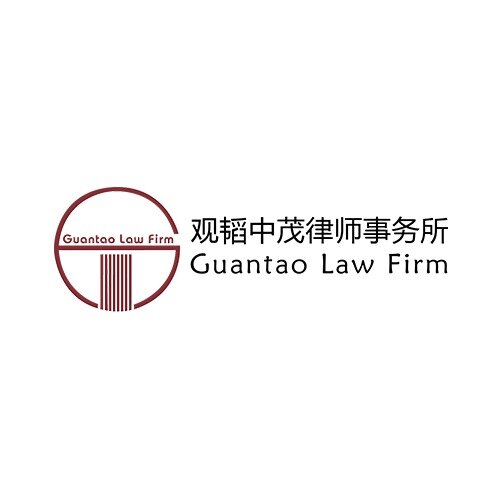Best Debt & Collection Lawyers in Beijing
Share your needs with us, get contacted by law firms.
Free. Takes 2 min.
List of the best lawyers in Beijing, China
About Debt & Collection Law in Beijing, China
Debt and collection law in Beijing, China, encompasses the legal framework governing the collection, settlement, and enforcement of financial obligations. The process primarily involves the legal recognition of debts, mechanisms for recovering owed money, and the rights and responsibilities of debtors and creditors. In Beijing, local practices and regulations may vary slightly within the context of national laws. The Chinese legal system provides various methods for debt recovery, including negotiation, mediation, arbitration, and litigation, with an emphasis on amicable resolution whenever possible.
Why You May Need a Lawyer
There are several scenarios where legal assistance might be crucial in the realm of debt and collection. If you are a creditor seeking to recover unpaid debts, a lawyer can help navigate the legal process efficiently and ensure compliance with all necessary legal procedures. If you are a debtor, a lawyer can defend against unfair collection practices and provide advice on repayment strategies or insolvency procedures. Lawyers can also facilitate negotiations and settlements, represent clients in court, and ensure that agreements are legally binding and enforceable.
Local Laws Overview
Beijing operates under the national framework set by the Contract Law of the People's Republic of China and the Civil Code. These laws outline the legal principles governing contracts and the obligations of the parties involved. The key aspects relevant to debt and collection include the recognition of debt, enforcement proceedings, and the limitations on debt recovery actions. Additionally, the Collection Law regulates the practices of professional debt collection agencies, ensuring they act within ethical boundaries and protect the rights of all parties involved.
Frequently Asked Questions
What is the process for legally recovering a debt in Beijing?
The process often involves sending a demand letter, negotiating an amicable settlement, initiating arbitration or mediation, and if necessary, filing a lawsuit in the people's court.
What are the limitations on debt recovery actions?
There is a statute of limitations for debt recovery actions in China, typically three years from the date the creditor became aware of the debtor's breach of obligation or inability to pay.
How can a lawyer help in debt negotiations?
A lawyer can facilitate negotiations by representing your interests, drafting agreements, and ensuring compliance with relevant laws and procedures.
Can I use a debt collection agency in Beijing?
Yes, but it is important to choose a reputable agency that complies with local laws and ethical standards in their collection practices.
What defenses can a debtor raise in a collection action?
Common defenses include lack of sufficient evidence, expiration of the statute of limitations, and miscalculation or misunderstanding of the debt amount.
Are there laws protecting debtors from harassment?
Yes, Chinese law prohibits certain aggressive collection practices that could be deemed harassment or intimidation.
What are my options if a debtor refuses to pay?
If negotiations fail, you may pursue mediation, arbitration, or file a lawsuit to obtain a court order for payment.
Can a debtor request debt restructuring?
Yes, a debtor can negotiate with a creditor to restructure the debt, often with the assistance of a lawyer or financial advisor.
What happens if I ignore a collection notice?
Ignoring a collection notice can lead to further legal action, including lawsuits or enforcement actions that may result in a court judgment against you.
Is mediation mandatory before pursuing litigation?
Mediation is encouraged but not mandatory. However, it is often a preferred step as it can lead to quicker and less contentious resolutions.
Additional Resources
The Ministry of Justice of the People's Republic of China provides resources and guidance on legal proceedings related to debt collection. The Beijing Bureau of Justice can also offer assistance in finding licensed legal practitioners. Legal aid centers and non-governmental organizations (NGOs) may provide help or services for individuals struggling to afford private counsel.
Next Steps
If you need legal assistance for debt and collection issues in Beijing, it is advisable to first consult with a licensed lawyer to understand your rights and obligations. Research and consult multiple legal professionals to find the right one for your specific needs. Gather all relevant documents and information related to your case before meeting with a lawyer to ensure a productive consultation. Consider using mediation services to resolve disputes amicably before proceeding to litigation, as this may be more cost-effective and less time-consuming.
Lawzana helps you find the best lawyers and law firms in Beijing through a curated and pre-screened list of qualified legal professionals. Our platform offers rankings and detailed profiles of attorneys and law firms, allowing you to compare based on practice areas, including Debt & Collection, experience, and client feedback.
Each profile includes a description of the firm's areas of practice, client reviews, team members and partners, year of establishment, spoken languages, office locations, contact information, social media presence, and any published articles or resources. Most firms on our platform speak English and are experienced in both local and international legal matters.
Get a quote from top-rated law firms in Beijing, China — quickly, securely, and without unnecessary hassle.
Disclaimer:
The information provided on this page is for general informational purposes only and does not constitute legal advice. While we strive to ensure the accuracy and relevance of the content, legal information may change over time, and interpretations of the law can vary. You should always consult with a qualified legal professional for advice specific to your situation.
We disclaim all liability for actions taken or not taken based on the content of this page. If you believe any information is incorrect or outdated, please contact us, and we will review and update it where appropriate.













